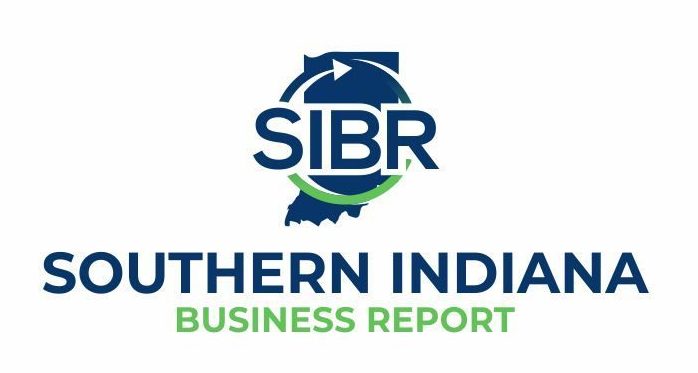By Michael Hicks | Ball State University
Secretary of Transportation Pete Buttigieg received a great deal of criticism lately for taking paternity leave. It is a time of snarled port traffic, understocked grocery shelves and growing worry about supply chains. I think these critiques are in bad faith and unworthy of an intellectually confident political movement. But, that’s where we are now. Congress could spend serious effort to ease logistics problems in any number of ways; the private sector is already at work. Outside of complaints about Mr. Buttigieg, Congress has been silent on the matter. Let me make three points.
First, parental leave policies are nothing new for the federal government. These policies, which apply to both parents for childbirth and adoption, intend to reduce workplace disparities arising from the absence of women during and after childbirth. The evidence remains mixed; still, it is federal policy. If a cabinet secretary were to skip his parental leave, it would signal further down the chain that family matters are not important. One may disagree with Mr. Buttigieg on issues of policy, but his leadership has been exemplary. Moreover, if the nation’s best-known same-sex couple were to ignore their parental leave, it would be dereliction of duty. Leaders set the example; otherwise this policy would have no teeth and no chance of affecting workplace disparities.
Secondly, the executive branch is mostly powerless to address issues of clogged ports, full trains or too few truck drivers, outside of issuing a constitutionally dubious emergency order to suspend industry rules. We should be thankful that the executive branch does not possess this sort of power — or at least that’s what conservatives used to believe.
As the legislative branch, Congress could do much to ease shipping backlogs. They could repeal the Jones Act, which prevents multiple port calls by non-U.S. flagged ships and keeps most international shipping from our internal waterways. The Jones Act is a prime causal factor in limiting the number of U.S. ports and which types of shipping can access smaller ports across the country. It is legislation that creates artificial shortages.
The Jones Act results in fewer ports of entry and more power to the International Longshoreman Association, resulting in antiquated U.S. port technology. Today, American seaports are the most technologically backward and least-automated ports in the developed world. It will take us years to catch up to China because the lack of competition allows the ILA to effectively set automation policies. A GOP Congress could have fixed this while Mr. Trump was in office, and a Democratic Congress can fix it now.
Congress could tackle logistics issues by (1) investing in truck platooning and rest facilities that would ease congestion in major cities, or (2) adjusting driver sleep requirements to allow truckers to time their routes to avoid heavy congestion points while increasing total sleep on a trip, or (3) changing the age restrictions for interstate commercial driver’s licenses, or (4) allowing Mexican trucking firms to deliver goods into the U.S.
All of these could’ve been done by the GOP when President Trump had majorities in both houses, and they could be done by the Democrats today. None of this requires the Secretary of Transportation to be present; he is in the executive branch of government.
Thirdly, the private markets, not the Department of Transportation, will remedy supply chain problems. I’m just old enough to remember a bold and intellectually rigorous political movement whose members took every chance they could to remind us of the power of the private sector. Those folks are mostly gone, so I’ll spirit those ideas back onto this page.
The most obvious example lies in labor markets for truck drivers. Inflation-adjusted wages for truck drivers is now below that of the late 1990s. There is not now, nor has there ever been, a truck driver shortage. Rather, we just needed this pandemic to remind folks that that labor markets have both a demand and supply side. The false claims of a trucker shortage were so loud that many states fully subsidize CDL training. Indiana even added a K-12 career pathway for truckers that started in sixth grade, which should embarrass every Hoosier. And, do not be fooled by help wanted ads promising high wages; actual wages in the occupation lag well behind the advertised wage.
The rail industry slashed its workforce over the past decade, eliminating nearly one in three jobs since the early 2010s. Employment and wages for railroad workers are beneath the 2015 levels. So, despite record rail shipments, the industry has a smaller wage bill before accounting for inflation. Wages in this industry have crept upwards by 1.1% per year. Any labor market problems in this industry are to be found in the HR departments, not the trains.
These examples make it look like the private sector caused the supply chain problems, but it did not. In fact, the private sector is handling this entire issue well, given the somnolence of Congress. Domestic manufacturing GDP hit a new inflation-adjusted record this year. Second Quarter 2021 was the single highest quarter of manufacturing GDP production in U.S. history.
At the same time, imports of goods are at an all-time, inflation-adjusted record level. Americans are buying more domestically produced goods and importing more from overseas than at any time in history. For the most part, the empty shelves seem to be due less to the supply of trucks, rail and shipping, and more to our growing demand for goods.
Michael J. Hicks, PhD, is the director of the Center for Business and Economic Research and the George and Frances Ball distinguished professor of economics in the Miller College of Business at Ball State University.



